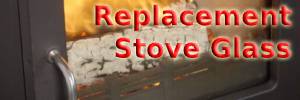Lancashire County Council expects to save over £500,000 on energy bills this year thanks to a programme to install LED street lights.
The council is one year into a three-year scheme to replace old lamps with new low-power LEDs following a successful bid to the Department for Transport's Highway Maintenance Challenge Fund for £14.8m to invest in the new technology. The county council has contributed £5m matched funding to create an investment pot totalling almost £20m.
Nearly 12,000 new lamps have already been installed, with engineers expecting to replace 63,000 by the end of the programme, leading to energy savings of £2.6m a year at current prices.
The council has also made savings of more than £250,000 on contracts for the new lights as a result of being able to negotiate lower costs on the large volumes being procured.
County Councillor John Fillis, cabinet member for highways and transport, said: "This huge investment in modernising our street lights will result in savings being made in a number of ways.
"We've already begun to save a lot on energy bills, and these will become even lower as we install more LEDs throughout the three-year programme. It takes a lot of electricity to light our streets, and using less energy also has environmental benefits, reducing our carbon footprint.
"The renewal of so much of our vital infrastructure means we will benefit from lower maintenance costs – the old sodium lamps need to be replaced every four years whereas LEDs will last for 25 years.
"In addition, the scale of the investment programme means we have got a good deal on the large volumes of new parts."
The scheme has also seen around 900 new street lighting columns being installed so far, with 4,000 due to be replaced in total.
A further aspect of the scheme will result in around 150 charging points being established throughout the county to encourage uptake of electric vehicles, also known as Ultra Low Emission Vehicles (ULEV).
It is proposed that the charging points be delivered during the final year of the programme, and the county council will be working to develop partnerships with public and private organisations to ensure they're located where people and companies using ULEVs will find most useful.
|
|
||||||
Check Todays Deals on Ebay.co.uk Your Comments:
Custom Search

|
You are in:
UK /
Croston / North West
Find any Town in the UK, or Use UK map Local Google MAP for Croston Check Todays Deals On Amazon.co.uk Check Todays Deals on Ebay.co.uk 


 Be Seen - Advertise on Qlocal Corporate Sponsors
Southport Piano and Music Academy Washroom Services Maximum Grounds Maintenance Southport Garden Services Ormskirk Garden Services Sanitary Bins Nappy Bins & Waste Disposal Confidential Shredding Services Legionella Risk Testing London Washroom Services Croydon Washroom Services Hounslow Washroom Services Wandsworth Washroom Services Havering Washroom Services Sanitary Bins London Clinical Waste London General Waste London Legionella Testing London Shredding London Tatoo Waste London Preston Bird Control Blackpool Bird Control
UK, Local Online News Community, Forums, Chats, For Sale, Classified, Offers, Vouchers, Events, Motors Sale, Property For Sale Rent, Jobs, Hotels, Taxi, Restaurants, Pubs, Clubs, Pictures, Sports, Charities, Lost Found
croston,
croston News,
|
|||||





 Reply With Quote
Reply With Quote